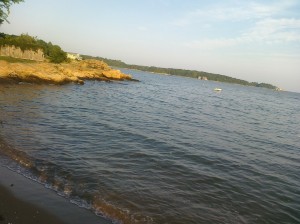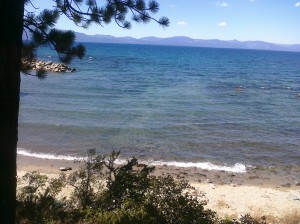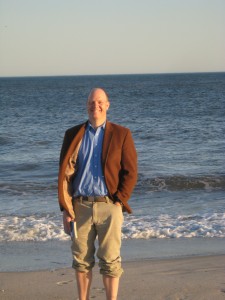Saturday 4 Sept 2010 was a big end-of-summer day on the local blue humanities front. Turnings of the tide…
My son Ian & I swam in the Short Beach Days swimming races; Ian placed fourth as a nine year old in the 9-10 age range, & I placed third in the old guys 40+ category. We both need to work on our starts.
Both kids, plus some neighbors, entered the Sand Sculpture contest in the “unassisted” division, which meant that I could not help sculpt & instead got a great mid-day swim out to Half-Tide rock in the middle of the bay. Back in time to see them awarded “Most Original” for sculpting the “Short Beach Alien Invasion.” Nice use of seaweed & other plant materials…
As part of the haul from the kids’ “Juice Stand” in the afternoon, Olivia received a US quarter stamped with “Northern Mariana Islands” — one of the most coveted in our collection.
We’ve found three now from the non-state territories: Grandpa Bill received Guam in change from a DC taxi-cab, Ryan the babysitter got Samoa for Ian in a Branford Dunkin Donuts, & now Olivia’s Marianas from the Short Beach juice drinkers. Changes how you look at change.
Just after the 8:19 pm high tide, Olivia & I took a night swim — the moon hadn’t risen yet, a few bright stars behind fleecy clouds, warm water, and cold air. The beach is lit by street lights, and they dim fast as you swim out. Swimming is always about putting your body in a place that it can’t fully understand, where you move slowly & can’t see well. At night, in warm water, in the dark, swimming doubles itself — opaque and invisible and all around you. I love a night swim.
Also, “Lost at Sea” struck its sails in DC at 5:00 pm. Into the dark night…





